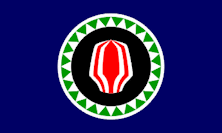Bougainville - Foreign Relations
 The people of Bougainville would ultimately be responsible for bringing an end to the conflict which had ravaged their island for so long. A number of countries, groups and individuals, would have a role.
The people of Bougainville would ultimately be responsible for bringing an end to the conflict which had ravaged their island for so long. A number of countries, groups and individuals, would have a role.
Geographic proximity and historical links have given Papua New Guinea a special place in Australia's foreign relations and the bilateral relationship is one of our most complex and wide-ranging. Australia's partnership with Papua New Guinea in the Autonomous Region of Bougainville supports peace, stability and economic growth. As a signatory witness to the 2001 Bougainville Peace Agreement, Australia has supported Papua New Guinea and Autonomous Bougainville governments to strengthen governance and service delivery, increase economic growth and promote social cohesion through peace building activities.
In 2019-20, Australia's development assistance to Bougainville of approximately AUD36.3 million was delivered through pecific initiatives supporting the Bougainville referendum, governance, economic development and peace building (AUD20.6 million); and national sector programs in health, education, transport infrastructure, law and justice, gender and labour mobility (AUD15.7 million).
A referendum on the future political status of Bougainville in Papua New Guinea was held from 23 November 2019 to 11 December 2019. The conduct of the referendum was one of three key pillars of the 2001 Bougainville Peace Agreement (the others being 'autonomy' and 'weapons disposal').
Australia is providing comprehensive advisory support to effectively implement Bougainville's autonomy arrangements. This assistance strengthens core functions of government including public sector management, human resources and recruitment, electoral systems, legislative drafting and land management and administration. Australia also provides project-based support to communications and media, government infrastructure, leadership training for senior Bougainville public servants and ministers, and to facilitate the draw down of powers under the Bougainville Peace Agreement.
New Zealand is supporting the peace process where requested by the national government of PNG and the autonomous government of Bougainville, including through leading a regional policing presence over the referendum period. It also provided ongoing development support to Bougainville including support to community policing through New Zealand Police and projects for electrification, health and governance.
Maori culture had been helping to build trust in Bougainville and Papua New Guinea for decades. It was about establishing the Kiwi brand – the New Zealand brand – in a way that was actually quite Pacific – or certainly of the Pacific. New Zealand politicians, diplomats, and military and police personnel would play an instrumental part. The Ministry of Foreign Affairs and Trade’s role was characterised by careful and skilled diplomacy, but also moments of risk, luck and opportunity.
Throughout the late 1980s and early 1990s, New Zealand’s High Commission in Papua New Guinea and other missions in the Pacific had been following developments with concern. New Zealand diplomats had made regular visits to Bougainville to encourage the sizeable New Zealand population to leave the island in the face of a deteriorating security situation. These visits helped to build relationships with people in Bougainville who later became critical to the peace process.
Over a number of years New Zealand’s High Commission in Port Moresby worked to establish links and networks with the people of Bougainville, while not putting the Government of Papua New Guinea offside, and to lay the groundwork behind New Zealand’s subsequent involvement. This relationship and trust building was critical in ensuring that New Zealand would later be seen by both sides as a credible and respected partner in the peace process.
|
NEWSLETTER
|
| Join the GlobalSecurity.org mailing list |
|
|
|

